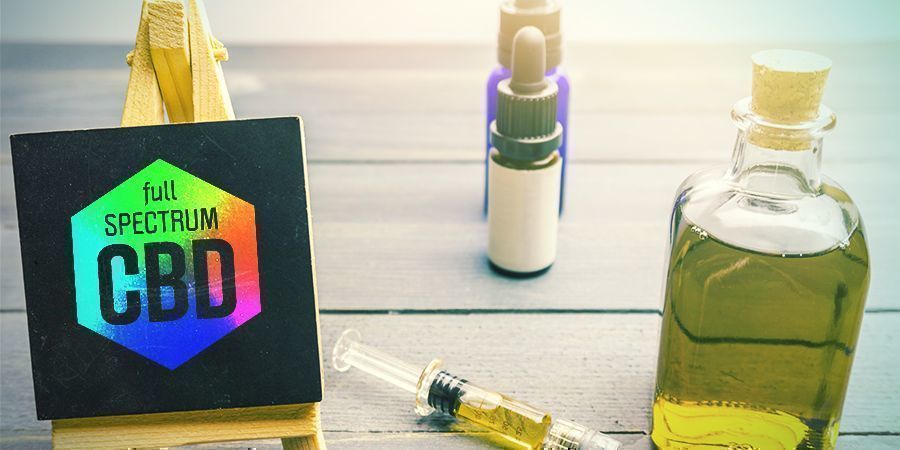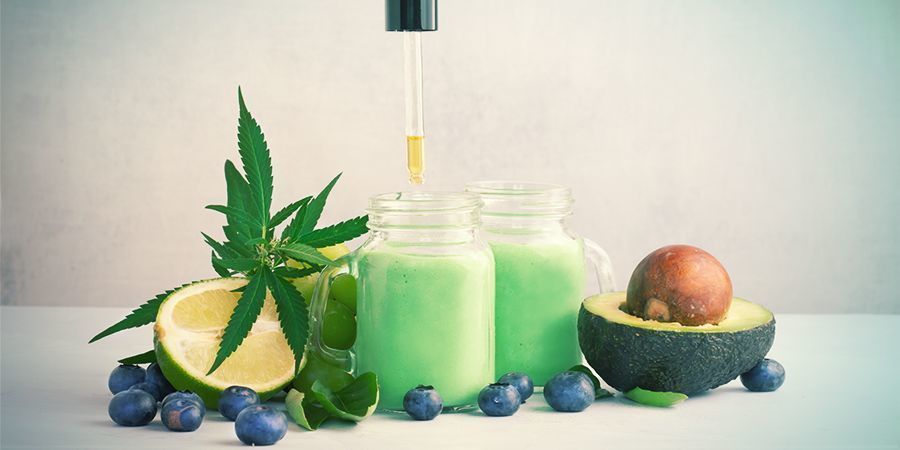
What To Do When CBD Isn't Working For You
It can be a little disheartening to feel that CBD is not working for you in the way you believe it should. While everyone's experience will differ with the cannabinoid, it is certainly worth getting to the root cause of why it's not working, so you too can enjoy the potential benefits CBD has to offer.
There's no denying the popularity of CBD today. Whether it's consumed as an oil capsule, through topical means, or vaporized, it's how CBD interacts with the endocannabinoid system (ECS) that allows for some interesting potential benefits. But will CBD work for you? What if you don't feel any effects? Before answering these questions, let’s dig a bit deeper into how CBD works in the body.
Understanding CBD’s Potential Benefits
The ECS is a system made up of numerous receptors located throughout the body. While CBD doesn't bind to these receptors directly (in the way that THC does), it takes an indirect path to promote the production of beneficial endocannabinoids and to support overall homeostasis. Unfortunately, there is so much more to learn about this complex cannabinoid, and researchers are currently moving full steam ahead with major clinical trials on the subject. While we can’t say definitively how CBD will affect you, we can look to the information we do have to offer some general guidance.
Amongst CBD’s potential benefits is its soothing, relaxing effect on users. This, in turn, can contribute to an improved mood. Of course, these effects may appear for some and not others. Moreover, how long the effects of CBD last depends on a few variables, such as the method of ingestion, the concentration, the overall quality of your chosen CBD product, and your metabolism.
For example, the effects of CBD consumed as a sublingual tincture or oil will last around 2–4 hours, whereas edibles have a longer-lasting period of 4–6 hours. Couple this with the overall quality and concentration of the CBD, and the impact of CBD can change dramatically. Moreover, CBD that has not been decarboxylated or contains additives can impact its potency and effectiveness.
Your body will also play a role in how you process CBD. There is certainly no “one size fits all” when it comes to dosing and effectiveness. Someone with a fast metabolism, for example, will process the CBD much quicker.
Reasons You Might Not Feel CBD's Effects (And What to Do About It!)
Although the effects, and their longevity, will no doubt vary from user to user, there are definitely some potential benefits to be experienced with CBD. However, it is important to remember that the effects of CBD are not always prominent, and, in some cases, may not be noticeable at all.
This is not only a concern for new users; seasoned users may also notice a decline or absence of noticeable effects. However, this doesn't necessarily mean the CBD is not working. So, how do you know if CBD isn’t working for you, and what can you do about it? We've put together a list of possible factors that could be behind why you're not getting the desired benefits from CBD.
Overestimating the Effect
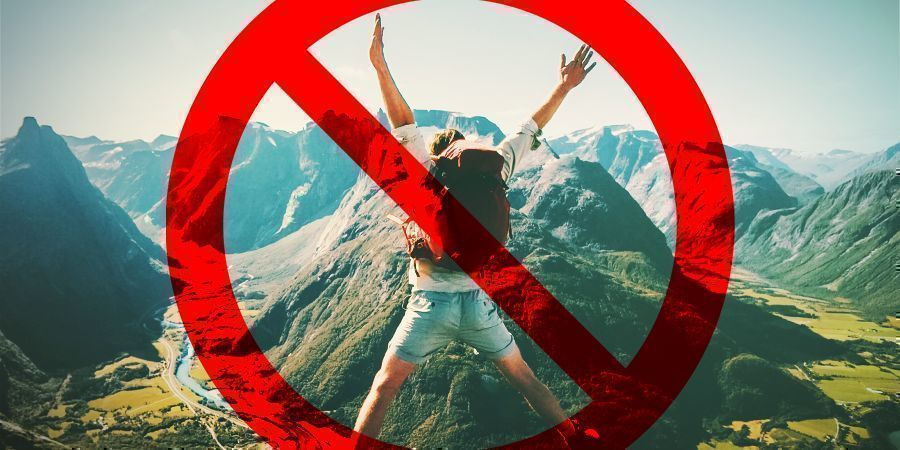
This is arguably one of the most common pitfalls when looking to take CBD for the first time. Many expect to have an instant reaction or a strong feeling of euphoria after ingesting, like with THC-rich cannabis. This is simply not the case with CBD, and those expecting a powerful high or immediate effects are sure to only find disappointment.
What Can You Do About It?
Simply doing a little bit of research before taking CBD will go a long way. By keeping your expectations in check and familiarising yourself with the most common potential benefits, you can hone in on any effects if and when you notice them. It is important to remember that all cannabinoids react differently with the body, and CBD is no exception.
Under-Dosing
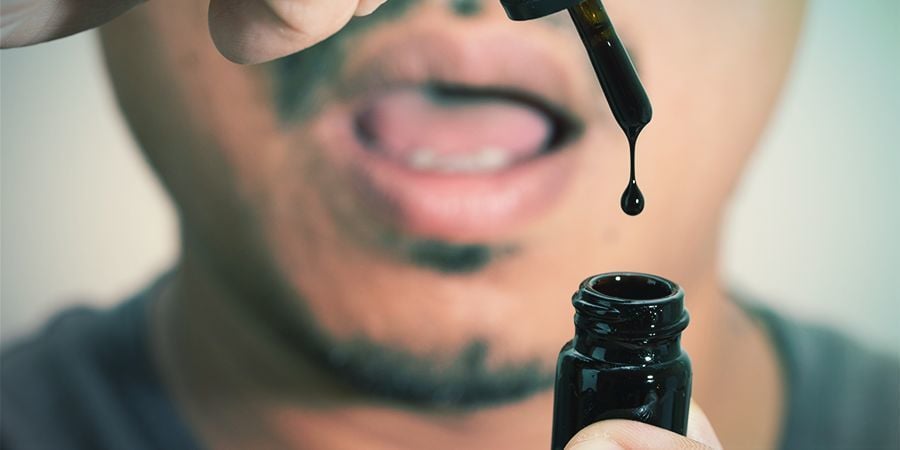
Not feeling any effects after taking CBD? This could be down to the dose. While it's recommended to proceed slowly and with smaller doses of CBD, this is to monitor any potential benefits or side effects as you become accustomed to the cannabinoid. Once you become familiar, you can look to slowly increase your intake.
The amount of milligrams of CBD consumed per day is not the only factor to address with under-dosing. You can also look to the percentage of CBD per bottle and per drop. This can provide an effective way for users to increase their dose by moving to the next available CBD percentage. These percentages can be broken down into milligrams of CBD as well. For example, a user looking for 250mg of CBD per bottle can find this in a 10ml container indicating a 2.5% CBD content.
What Can You Do About It?
Starting with a dosage of around 10–40mg of CBD per day, users can then look to increase their intake after a period of a couple weeks. Increase your dosage slowly over the coming months until you start feeling the desired effects.
Consuming CBD on an Empty Stomach
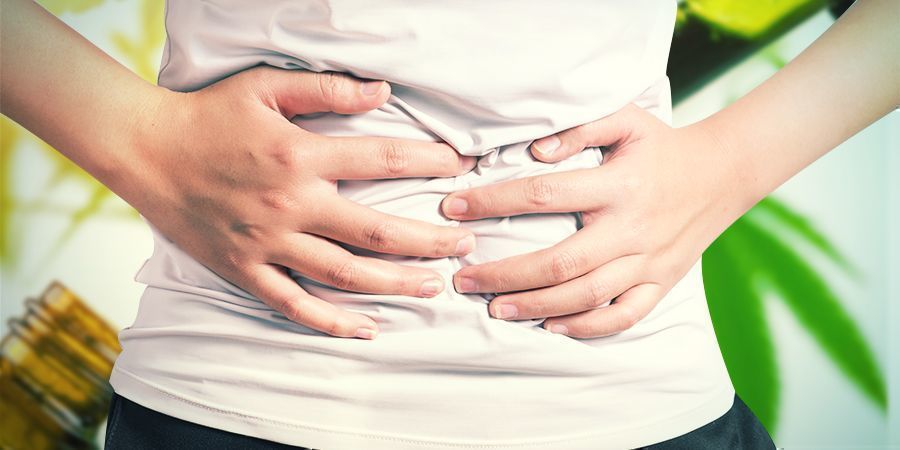
As a rule of thumb, daily supplements are most effective when taken with food, and CBD is no different in that respect. Taking CBD without food will make for a less-effective dose as it is more efficiently absorbed alongside fats.
What Can You Do About It?
Taking CBD after a meal rich in omega-3 fatty acids, such as salmon, seeds, and legumes, will allow CBD to be absorbed into the body quicker and more effectively. Couple this with some complex carbs like sweet potatoes, pasta, and lentils to allow the potential benefits of CBD to last longer.
Being Impatient About CBD’s Effects
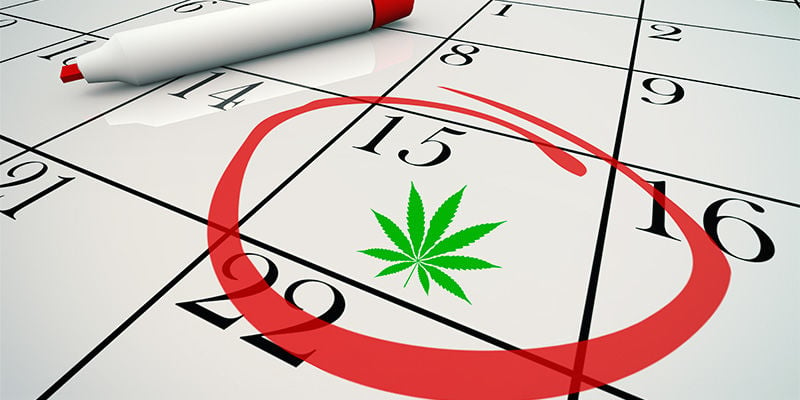
This is almost the same as overestimating the effects of CBD. We live in a world where many people want instant gratification and are not willing to wait for any rewards. Unfortunately, this can also make some users sceptical of ingesting CBD. Taking CBD oil for a week and not feeling any effects is a common situation, causing some to simply give up after this point. And, while you may not experience any strong sensations from the CBD, that doesn’t mean it’s not working.
What Can You Do About It?
Again, doing a little research will go a very long way when it comes to introducing CBD into your daily life. Just like you wouldn’t expect a vitamin or supplement to change your life in a week, you shouldn't do that with CBD either. Stay the course for the initial two weeks on a minimum dosage, then look to increase if you believe you are not feeling any benefits or effects. It's certainly worth sticking with CBD for at least a month before deciding it might not be for you.
CBD Product Is of Lower Quality
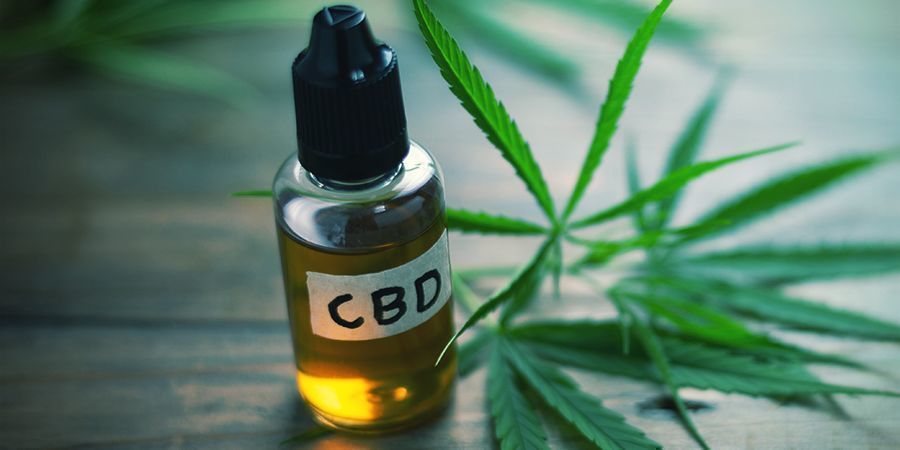
Because of CBD's major presence in daily life, there are unfortunately inferior products to be found. Just because your local health shop is selling CBD oil doesn't mean it's of the highest quality by default. Like so many products that try to capitalise on what’s current and popular, CBD also has its fair share of cheap imitations and sub-par products.
What Can You Do About It?
It is important to purchase CBD that is of the highest quality available to you. This can be determined by looking at a few different variables, such as the extraction method, the origin of the hemp used, as well as the cannabinoid profile. Choosing a reputable company with good independent reviews will also help ensure you source a quality product. Although each person's experience will differ, customer reviews can give you some helpful ideas of what to look out for when purchasing CBD.
Body Fat Interfering With Absorption
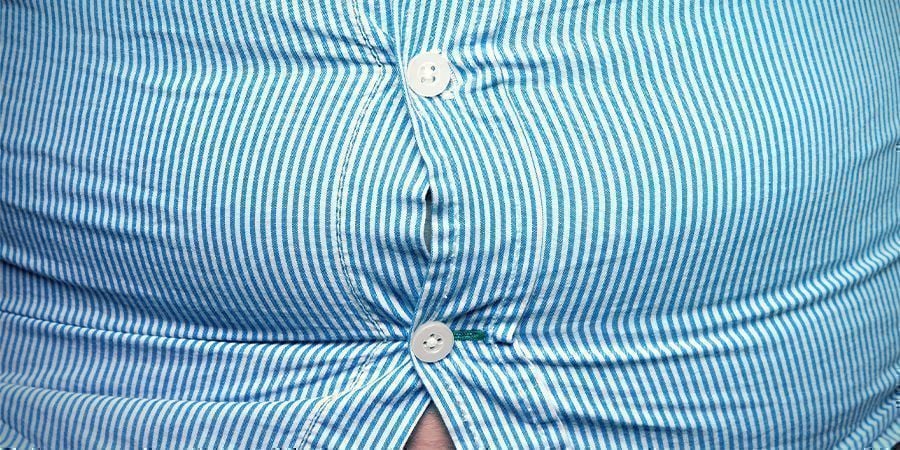
As mentioned earlier, body fat can be a major factor when it comes to getting the most from your CBD. A higher level of body fat will definitely affect the absorption of CBD into your bloodstream, as cannabinoids are drawn to fat cells.
What Can You Do About It?
If you feel that your body fat is interfering with absorption, there are a couple of different routes you can take. You can look to exercise and boost your metabolism, or you can simply look to increase the dosage. Whichever option you choose, there's no denying that body fat can impede the effectiveness of CBD.
Effectiveness of Full-Spectrum CBD vs CBD Isolate
This is a hotly debated topic. With so many CBD products available today, it is important to find the one that best suits your needs. Full-spectrum CBD is created by extracting not only the CBD from the plant, but also a host of other cannabinoids, flavonoids, and terpenes. While the contents of full-spectrum formulas are natural, some prefer to take nothing but pure cannabidiol. This has led to the creation of CBD isolate, a crystalline powder that contains roughly 99% CBD.
What Can You Do About It?
The choice of full-spectrum vs isolate is really down to personal preference. However, the potential of the entourage effect—a leading cannabis theory in which cannabinoids and terpenes work together to produce more profound effects—inspires many to choose a full-spectrum formula.
Wrong Consumption/Application Method for You
While you may prefer to create your own tinctures or oils to ingest CBD, it may not be the most effective administration method for you personally. It's all about finding what works for you and what doesn't. Oils are often the most common way to take CBD and are absorbed into the bloodstream via the mucous membranes under the tongue. Capsules offer a similar solution with a discreet and easy way to dose. They offer slower and longer-lasting effects as they take longer to be absorbed.
What Can You Do About It?
In addition to the aforementioned, there are plenty of other CBD administration methods, such as creating edibles, vaporizing CBD, or using topical creams. It is simply a case of discovering an application method that suits not only your personal preferences, but your overall trajectory with the cannabinoid.
CBD Might Not Be for You

This is a viable reason as to why CBD is not working for you; it might just not be for you. This may not be something you realise until you have looked at every option and checked out each method. However, the real reason can be a little more complex than just CBD not working.
What Can You Do About It?
It is entirely possible to be born with a predisposed genetic mutation that will block any of the potential effects CBD has to offer. Research has been undertaken in this area to determine CBD's relationship with the endocannabinoid system and its receptors. While a genetic mutation is extremely rare in this case, it could be the overall answer as to why CBD isn't working for you.
So, Will CBD Work for Me?
As you can see from our discussion above, CBD's effects won’t be the same for everyone, and even the effects you do experience may not be immediately noticeable. So, do your research, take your time selecting a quality product, and record your experience as you continue to take the cannabinoid or increase your dosage.
-
 3 min
21 July 2025
The best 1:1 THC:CBD ratio strains
1:1 THC:CBD strains offer a balanced high without the heaviness that high-THC strains can bring. Learn how CBD takes the edge off while keeping the buzz, and check out five of the best 1:1 strains...
3 min
21 July 2025
The best 1:1 THC:CBD ratio strains
1:1 THC:CBD strains offer a balanced high without the heaviness that high-THC strains can bring. Learn how CBD takes the edge off while keeping the buzz, and check out five of the best 1:1 strains...
-
 5 min
31 January 2020
Can You Build A Tolerance To CBD?
CBD bears a lot of benefits to the mind and body. But, like other substances, is it possible to build a tolerance to it?
5 min
31 January 2020
Can You Build A Tolerance To CBD?
CBD bears a lot of benefits to the mind and body. But, like other substances, is it possible to build a tolerance to it?
-
 3 min
26 November 2019
Here Are 8 Common Myths About CBD
CBD is more popular than ever, but it's still very much misunderstood by most people. In this article, we debunk 8 common myths about CBD.
3 min
26 November 2019
Here Are 8 Common Myths About CBD
CBD is more popular than ever, but it's still very much misunderstood by most people. In this article, we debunk 8 common myths about CBD.
-
 3 min
13 October 2019
How To Make Your Own CBD Oil With CBD Crystals
Don't have access to CBD flowers? Don't worry! Using CBD crystals to make your own CBD oil is much easier and less messy.
3 min
13 October 2019
How To Make Your Own CBD Oil With CBD Crystals
Don't have access to CBD flowers? Don't worry! Using CBD crystals to make your own CBD oil is much easier and less messy.
-
 4 min
17 August 2018
How To Increase CBD Levels When Growing Weed
CBD has become a superstar of the cannabinoid family in recent years. Although clinical trials are limited, preliminary research points to intriguing effects on the human body. A wealth of...
4 min
17 August 2018
How To Increase CBD Levels When Growing Weed
CBD has become a superstar of the cannabinoid family in recent years. Although clinical trials are limited, preliminary research points to intriguing effects on the human body. A wealth of...
-
 3 min
30 July 2018
Cibdol: Pure CBD Products From Swiss Experts
Cibdol is a renowned Swiss manufacturer of CBD products of unsurpassed quality and purity. Find out why they are regarded as the de facto standard when it comes to CBD oil. Learn what sets Cibdol...
3 min
30 July 2018
Cibdol: Pure CBD Products From Swiss Experts
Cibdol is a renowned Swiss manufacturer of CBD products of unsurpassed quality and purity. Find out why they are regarded as the de facto standard when it comes to CBD oil. Learn what sets Cibdol...







 United States
United States


